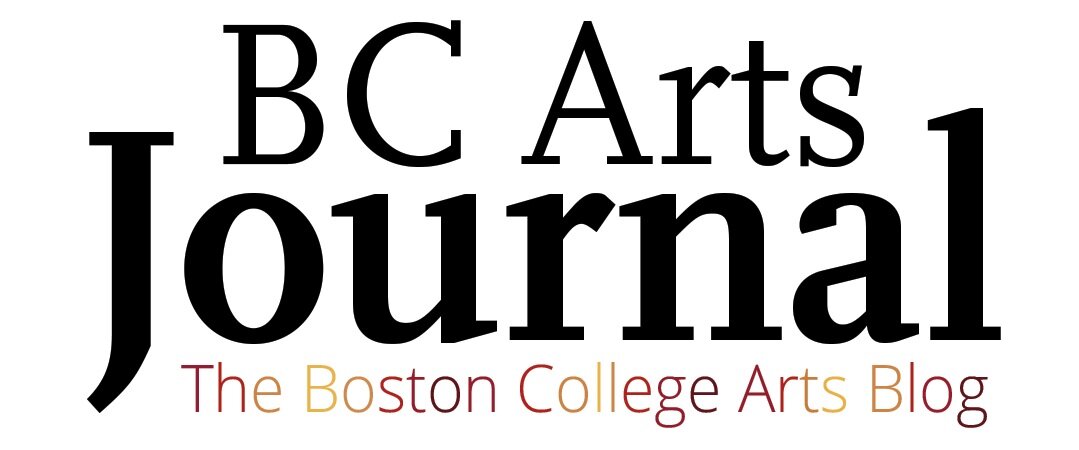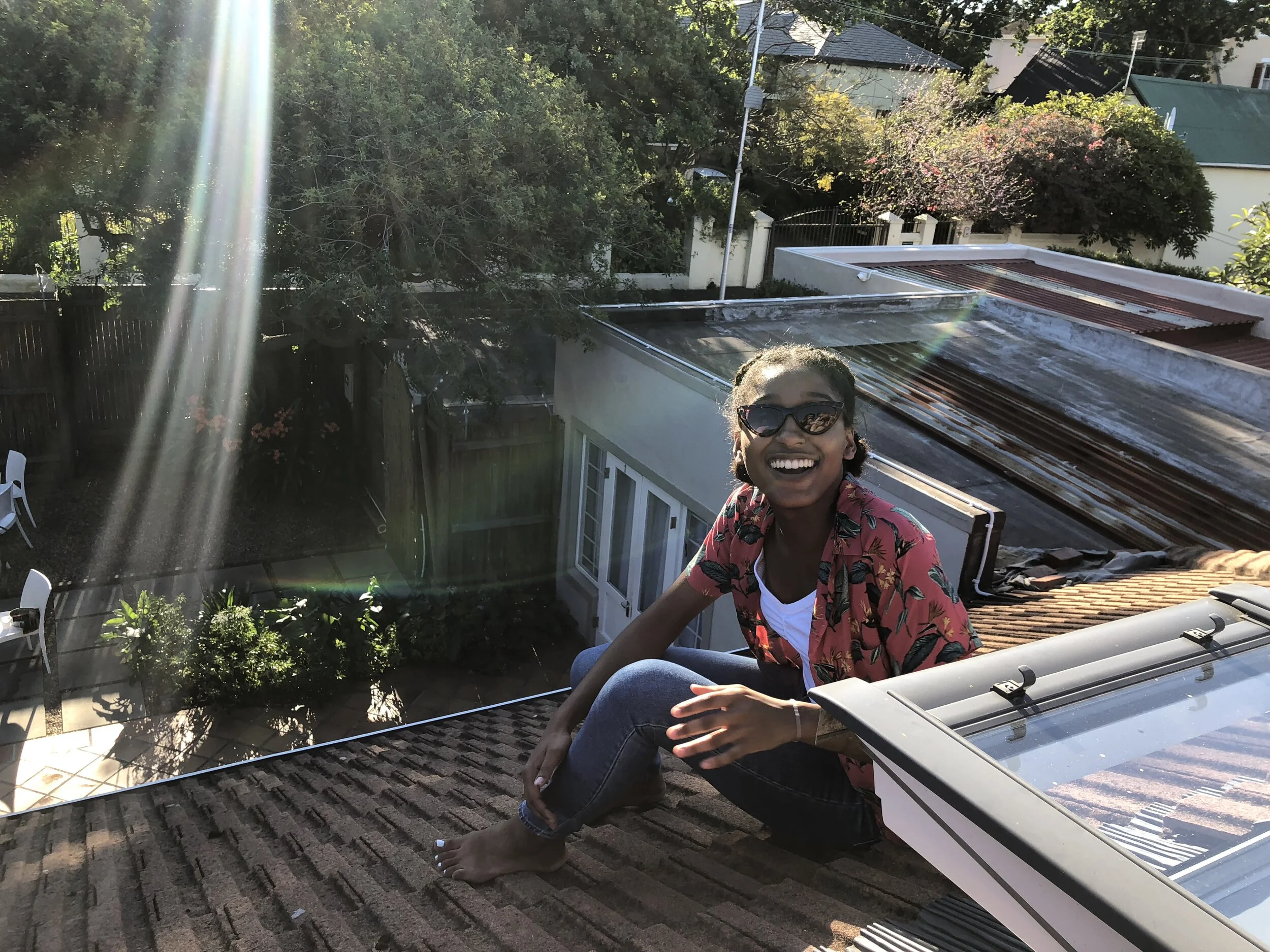2020 Arts Award: Ariel Lynch
by Ally Lardner ‘21
Senior Ariel Lynch reflects on her time in the arts at Boston College, and how she sees her studies in Applied Psychology influence her as an artistic collaborator. Ariel is the 2020 recipient of the Art Council’s Jeffery Howe Art History Award.
Ariel Lynch ‘20
Major: Art History and Applied Psychology & Human Development
Minor: Philosophy
McMullen Museum of Art: Ambassador, and Education Committee Co-Chair
Museum of Fine Arts, Artful Adventures Intern
How have you been involved in the arts at Boston College?
As one of very few Art History majors, at least in my class, it’s very easy to be thrown into the midst of the arts. My freshman year, I actually was a marketing intern for the Arts Council, so those are my roots! I helped out with the Arts Festival, volunteered for that in April. I think that freshman year was about realizing, Oh, there’s actually a big arts scene at BC. It’s just not really in your face.
After my freshman year, I applied for a job at the McMullen Museum of Art, and that’s where I fully found myself immersed in arts on-campus. At McMullen, initially I was just a member of the Education Committee and also the Collections Management Committee, but now I’m Co-Chair of the Education Committee. So I’ve been able to do a lot of educational programming and outreach for students at BC, but also students in local K-12 schools. In Collections Management, we’ve gotten to do cool things — we curated our own show in the spring of 2019.
What’s been your most meaningful arts experience at Boston College?
Ariel putting her studies in Art History and Applied Psychology to work.
Being in Lynch, I have a passion for education. Applied Psych and Art History are my majors, but art education is the route I want to take after graduation. At BC, I’ve worked with the Edison K-8 in a kindergarten class since my freshman year, and we started a yearly field trip to the McMullen Museum. I think that getting to create that partnership, and see the kindergarteners have so much fun at the Museum, has been really meaningful. Especially when you think about how, demographic-wise, it’s a lot of children of immigrants, people of color, low-income families, which are historically the demographics that don't really have access to the arts. I got to create an opportunity for those kids to have a fun, positive experience at an art museum that wasn’t strictly a docent or somebody just talking at them. . . it was us talking, having a conversation about the art. Keep in mind that they’re 6 years old, so it wasn’t super profound!
But getting to see some people’s first ever experience in an arts institution, and it being a very positive fun one. . . I think that’s been my most meaningful arts experience at BC.
How has your work in the arts informed your next steps after graduation?
I entered BC as an Art History major, so I always knew I really loved that, but it wasn’t until my sophomore year that I transferred to Lynch. I think when I first thought of Art History, I thought I had to get my PhD and be a professor or curator, because that’s just what I thought the options were. But I think taking classes, and talking to people — which I didn't do in high school! — and working at the museum helped me realize there’s not one track to being an Art History major. I don’t have to work in a museum, I don’t have to be a professor. And I saw how interdisciplinary the arts really are. Getting to work more closely with Studio Art majors and minors, I started thinking of art not as just research or academia.
Seeing the practical side of it has helped me understand that though I'm not a practicing artist I can use art practically. For me, the practice is through education.
This past summer, I was an intern at the MFA in the Education Department, specifically working with a program called Artful Adventures. The first half of the summer was some school groups that tapered off, but when we got to the bulk of the summer, we were mainly working with summer camps, and I think when it’s not in an academic setting, it’s kind of harder to hold kids down. But I like the program because it was 45 minutes in the gallery, talking about art and trying to create a conversation, and then we would do 45 minutes of art-making. Every kid actually got to leave with something tangible that they made.
It was a really good program and I learned a lot from it. I got to give out tours, I got to do research and create my own tours, but also I learned a lot about working in museums outside of McMullen. I think working at a university museum I got to see the fun side, because funding isn’t an issue because it’s all through the university, and it wasn’t something I thought about. At the MFA I got to see, not the bad side, but the struggles of working in a museum. To put it frankly, the education department isn’t nearly as funded as you would think it would be. I got to be disillusioned a bit, which was helpful for me in realizing if I was to work at a huge institution like the MFA, it would be a lot harder than I had initially thought.
Is that still something you think you might want to do in the future?
I think now it’s not my only goal. I think if you had asked me a year and a half ago, I would have said I want to be a museum educator at the MET or the Smithsonian Portrait Gallery — something at a huge museum, and still, obviously, if I could get a job at places like that, that would be great! But I think now I've delved my interests into nonprofits that are a little bit more on the ground, and would allow a lot more leeway than a place like the MFA can do.
One thing I also learned working there is that a lot of the work has to do with the name, and with the name there are certain standards. Obviously, it’s part of working at a museum when there’s a lot of people moving in and out. But it also helped me realize that in a non-profit arts organization that isn’t necessarily a research institution like a museum, there's a lot more connection that can be made that can’t really be made at a huge museum where millions of people visit a year.
What advice or thoughts would you share with students, especially underclassmen, about the arts at Boston College and beyond?
Like I said earlier, I wouldn't classify BC as an artsy school. I think you have to look for it a little bit, and that’s the hard part, especially freshman year when everything’s so overwhelming. I would say that it’s not easy to prioritize trying to find your niche. You have to really look for it — well, not really look for it, but it’s not going to be as easy to find at BC as a service club, where that’s what's in your face at the involvement fair.
I would also say that Boston is a really artsy city if you go to the right places, and again, it’s all about searching.
That's why I was really grateful to have an internship over the summer in the city of Boston. I got to explore it in a completely different light: I wasn’t thinking about school. I could just think, “Okay, I’m off of work, where do I want to go now? What things are accessible?”
Also, it was warmer, which made it way easier! But it was helpful to really step out of my comfort zone and say, “Oh, there’s a gallery opening I’m going to, even though I don’t know anyone, and I’m going by myself.” That kind of thing. Obviously that’s to each their own, but I feel in New York, it’s so obvious that it’s this artsy place. There’s Greenwich Village, and these neighborhoods where you’re like, “That's where all the starving artists live,” and whatever people think of it. But BC isn’t that, and Boston isn’t that, so really dive into it.
I’m trying to think about what some of my recommendations are. . . I think my favorite part of the city isn’t actually the city. Central Square and Cambridge are just the best. All the best food, all the best concert venues, everything cool is there. Also Harvard Ave and Allston — good stuff over there, weird stuff, which is also fun. I was just breaking into Somerville too!
Do you have any heroes or role models in the arts, at BC or in the general art world?
Yes, I can easily say my boss at the McMullen, Rachel Chamberlain, is actually my muse!
Rachel is one of the most incredible people I have ever met. We had a similar experience: she was going towards academia, she started her PhD, and then realized it wasn’t for her. And now she has this interest in museum and art education, and having a similar starting point for both of us made it easy for me to say, “Oh wow, everything you're doing is what I need to do!” But she’s really helped me explore the things I like and hasn’t necessarily put me down the same road of, “You’re really good at this, are you sure you don’t want to get a masters degree in art history?” Not that the Art History faculty has done that, but I think that going to a professor with a PhD, and telling them you don't want to get a PhD in Art History is a little more difficult than going to someone who has expanded into the art world in her own right, but didn’t do it through academics.
Getting to learn from her has been so helpful to me in realizing how many more opportunities in the arts there really are.


